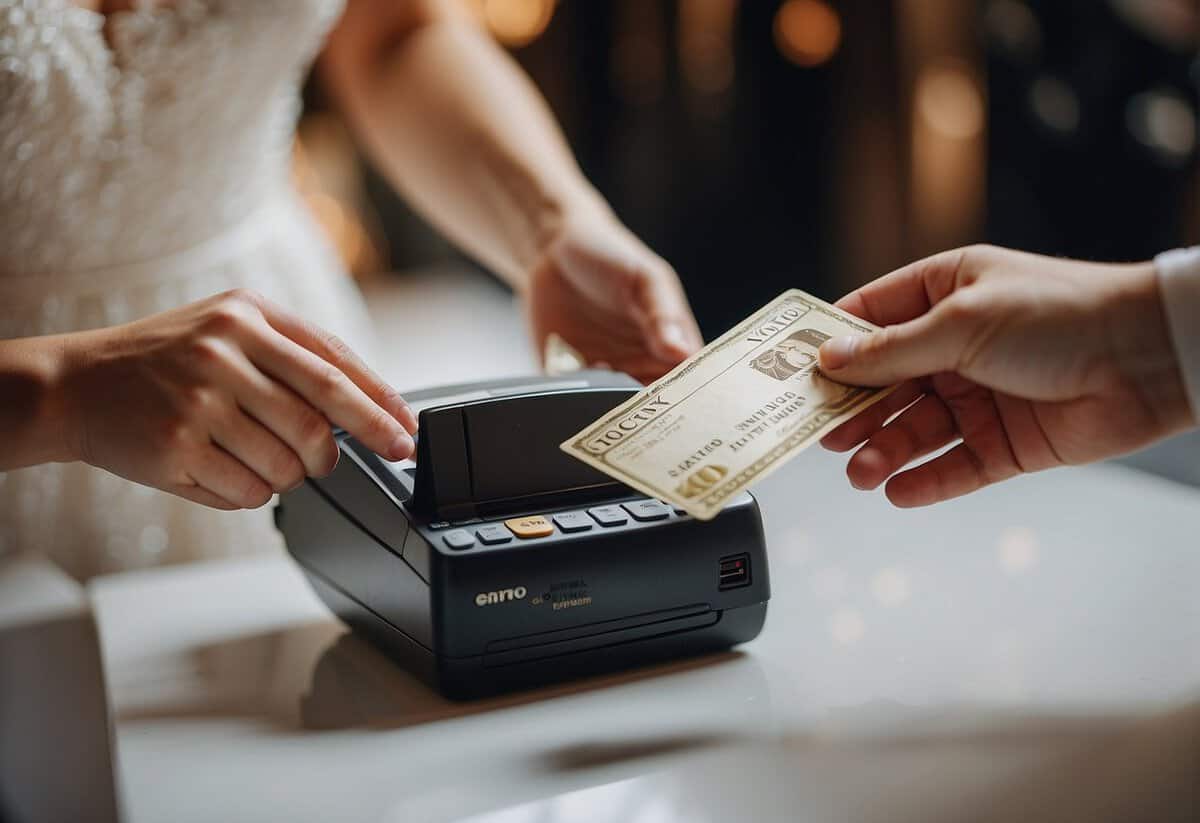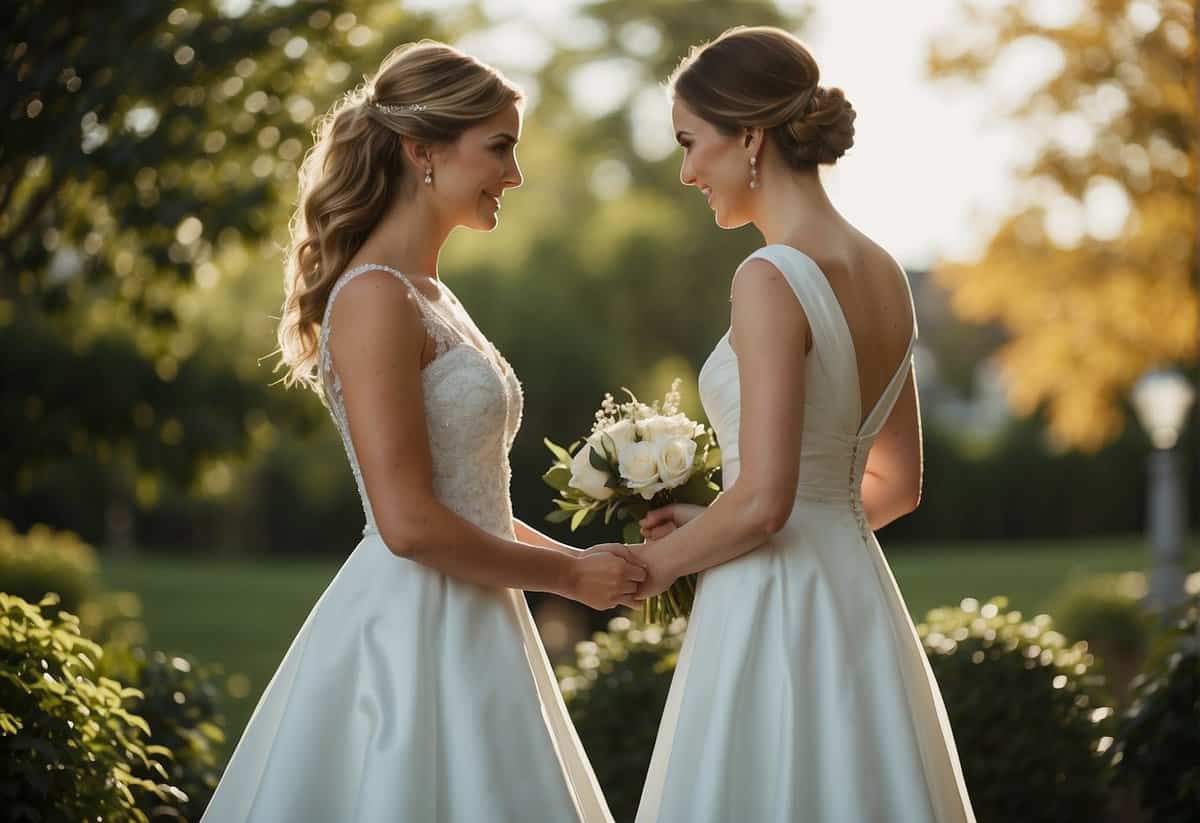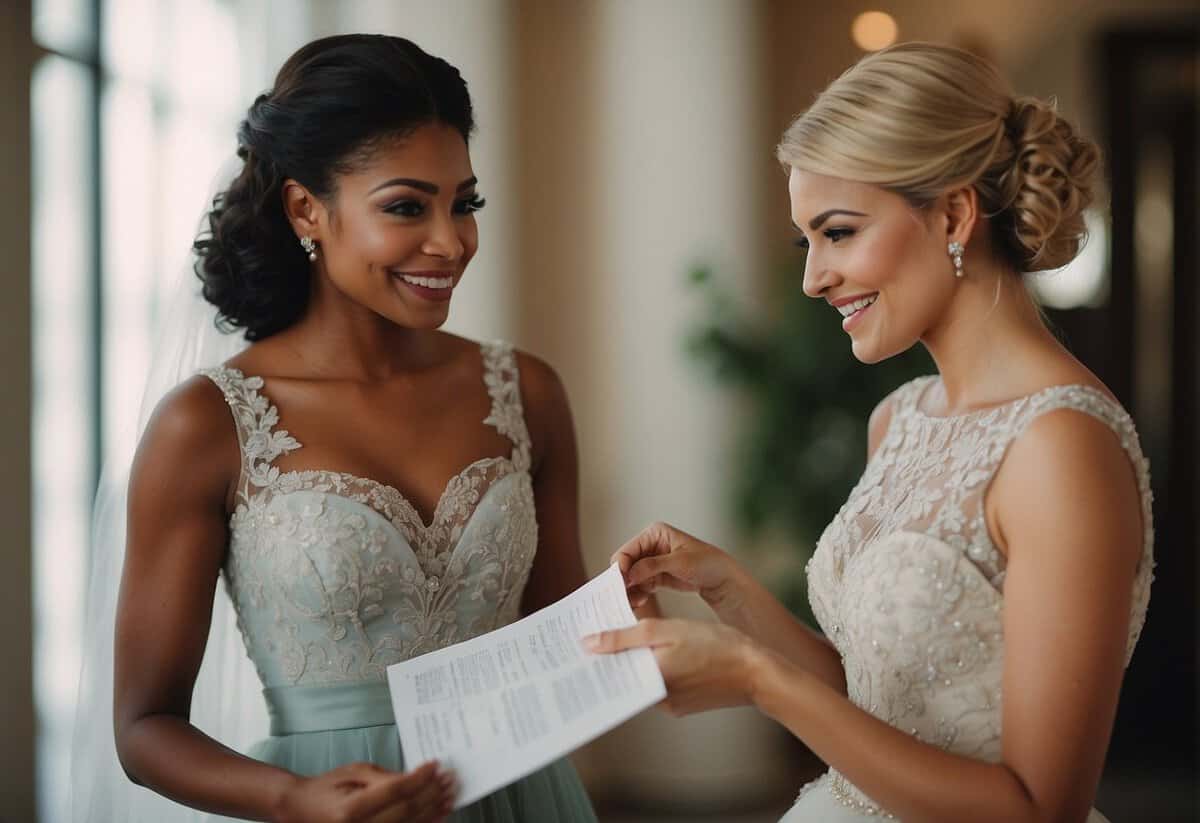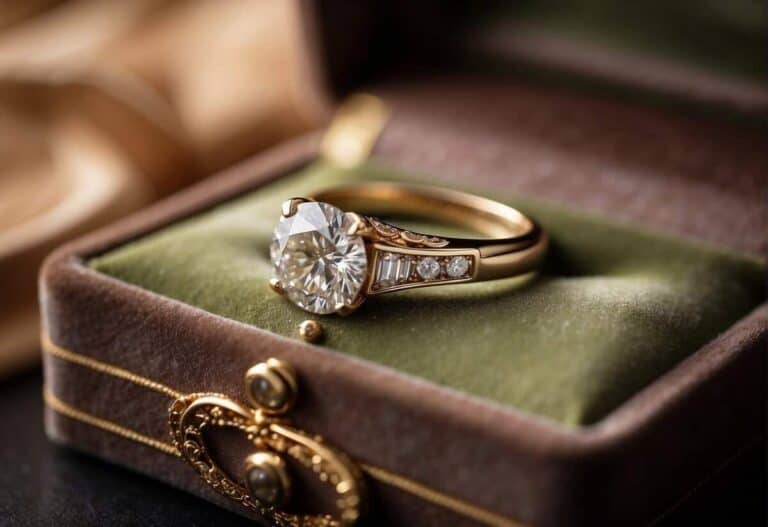Who Pays for Maid of Honor Dress? Decoding Bridal Party Etiquette
When preparing for a wedding, one of the important considerations is the cost and selection of the bridal party’s attire, particularly that of the maid of honor. Wedding etiquette can vary, but traditionally, the maid of honor is expected to pay for her own dress. However, this often depends on the bride’s preferences and the overall style and formality of the ceremony. The bride may choose the color and style of the dress, ensuring it aligns with the wedding’s theme, while the maid of honor typically handles the purchase.

Certain expectations come with the role of maid of honor, including financial responsibilities. These can extend beyond the dress to other wedding-related attire and activities. It’s crucial to communicate openly about expenses from the outset to avoid any misunderstandings. Remember, it’s all about support and celebration, not causing financial stress. The bride and her maid of honor should work together to make choices that honor tradition while also being considerate of personal budgets.
Key Takeaways
- The maid of honor usually pays for her own dress in accordance with wedding traditions.
- Direct communication about attire costs between the bride and maid of honor is essential.
- Consideration of personal budgets is important in maintaining a friendly and supportive experience.
Exploring Bridesmaid and Maid of Honor Attire Costs

When it comes to your special day, understanding the financial aspects of bridesmaid and maid of honor attire can save you and your bridal party from stress. Let’s navigate who traditionally covers the expense and what average costs you might expect.
Determining Who Pays for the Dress
Traditionally, bridesmaids and the maid of honor are expected to pay for their own dresses. However, this is not a strict rule and sometimes varies depending on individual circumstances or cultural expectations. If you’re the bride and your heart is set on a specific, perhaps pricey, dress for your bridal party, consider their budgets. It’s common courtesy to have a candid conversation about dress expenses early in the planning process to ensure that your bridal party can prepare for the associated costs.
The Average Cost of Bridesmaid Dresses
The cost of bridesmaid dresses can vary widely. You might find that the average cost of a bridesmaid dress typically ranges from $100 to $500. Maid of honor dresses can sometimes cost more, depending on additional embellishments or design features that set her apart from the rest of the bridal party. It’s also worth noting that factors such as designer labels, custom fittings, and dress material can significantly influence the overall price. Trying to balance style and budget? Shopping at a secondhand or resale shop is often a financially savvy option without sacrificing the glamour.
Etiquette and Tradition in Dress Selection and Payment

When preparing for a wedding, understanding the etiquette around dress selection and managing the associated costs is crucial. It ensures that everyone involved can make informed decisions and contributes to a smoother wedding experience.
Bridal Party Expectations and Norms
Traditionally, members of the bridal party are expected to pay for their own attire, including the maid of honor. Your role comes with the honor of providing support to the bride during this special time, including the selection of your dress. Traditional wedding etiquette suggests that you cover the cost of your outfit, which typically aligns with the wedding’s theme and palette as chosen by the bride.
Navigating Financial Responsibilities
When navigating financial responsibilities, clear communication is key. The bride should express her expectations regarding the style and price range of dresses early in the process, allowing you to budget accordingly. If expenses are a concern, it’s acceptable to discuss this with the bride. Sometimes, the bride may choose to contribute towards the cost or select a more affordable range. Remember, your presence and support are what truly matter.
Wedding Attire Decisions: Style, Color, and Fit

When planning your wedding attire, it’s essential to ensure that the style, color, and fit reflect not just your personal taste but also align with your wedding’s overarching theme.
Harmonizing Personal Style with the Wedding Theme
Your personal style is a vital component in the wedding equation, as it helps to create a cohesive look that resonates with the chosen theme. As you select bridesmaid dresses, consider how each piece can encapsulate your vision while allowing room for your bridesmaids to feel comfortable and confident. It’s about striking a balance between their personal styles and the aesthetic you envision for your big day. The key is choosing dresses that respect your theme, yet are versatile enough to celebrate their individuality.
The Role of Color and Style in Wedding Aesthetics
The color scheme of your wedding plays a formidable role in establishing the overall aesthetic. Be mindful of how the colors of the bridesmaid dresses contribute to this palette. Color choices should not only be flattering but also harmonize with the decorations, florals, and the setting to create a visually cohesive celebration. Selecting the style of the dresses is just as crucial, as it directly impacts the fit and comfort of your bridal party. When it comes to fit, opting for tailoring services can ensure that each bridesmaid dress enhances the body shape of its wearer, marrying comfort with sophistication.
Additional Costs Associated with Bridal Party Attire

When preparing for a wedding, it’s not just the maid of honor dress you need to think about. There are several additional costs that can add up quickly, from accessorizing to alterations, as well as expenses related to pre-wedding events.
Accessories, Alterations, and Pre-wedding Events
Accessories: Beyond the dress, you’ll often purchase accessories like shoes and jewelry to complete your look. These are typically chosen to match your dress and the wedding’s theme.
- Shoes: Ranging from heels to flats, the right pair is a must.
- Jewelry: Bracelets, earrings, or necklaces may be necessary to harmonize with your attire.
Alterations: Your dress may not fit perfectly off the rack, so budgeting for alterations is important. These may include hemming, taking in or letting out areas, and possibly adjusting straps or sleeves for the best fit.
- First fitting: Basic adjustments like the dress length.
- Additional fittings: More detailed modifications, such as the waist or bust.
Pre-wedding Events: Expenses for the bridal shower and bachelorette party often fall partly on you. These can involve:
- Travel expenses: Getting to and from the location.
- Accommodations: Staying overnight, if required.
- Gifts: Both a bridal shower gift and a wedding gift are common expenses.
Travel, Accommodation, and Bridal Party Support
Travel and Accommodation: Being part of a wedding might mean traveling to a different city or even country, especially for a destination wedding. This could entail:
- Travel costs: Flights, gasoline, or other transportation.
- Accommodation: Booking a wedding day hotel or other lodgings.
Bridal Party Support: Being in the bridal party can include supporting the bride in various ways that might incur costs, such as helping with wedding planning or emergency expenses that arise on the day of the wedding. Keep this in mind when budgeting for your role as maid of honor.
Frequently Asked Questions

When preparing for a wedding, it’s essential to understand who is financially responsible for certain expenses, including the attire of the maid of honor. These frequently asked questions can provide clarity on what you may need to budget for.
Is it customary for the maid of honor to pay for her own dress?
Yes, it is generally expected that the maid of honor pays for her own dress. The exception might be if the bride decides to gift it or if there are unique financial arrangements agreed upon in advance.
What expenses are the maid of honor typically responsible for in a wedding?
As the maid of honor, you’re typically expected to cover the cost of your dress and possibly your accessories and travel expenses. You may also share the costs of the bridal shower and bachelorette party with the bridesmaids.
Can a bride choose to cover the cost of the maid of honor’s dress?
Yes, a bride can choose to cover the cost of the maid of honor’s dress. This is less common and is typically a personal decision based on her budget and relationship with the maid of honor.
Should the maid of honor expect to pay for her own hair and makeup?
Often, the maid of honor is expected to pay for her own hair and makeup unless the bride has offered to pay as part of her wedding gift to her bridal party.
What’s the protocol for discussing who pays for bridesmaid and maid of honor attire?
It’s important to discuss financial expectations early on. The bride should clearly communicate who will pay for what to avoid confusion and ensure that the bridal party is aware of their financial commitments.
Is it okay for the bride to request the maid of honor to buy a specific dress?
Yes, the bride can request the maid of honor to buy a specific dress, but it’s considerate to keep the maid of honor’s budget in mind when choosing the style and price range.

